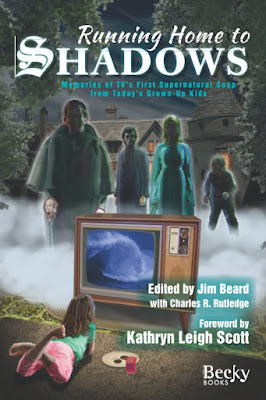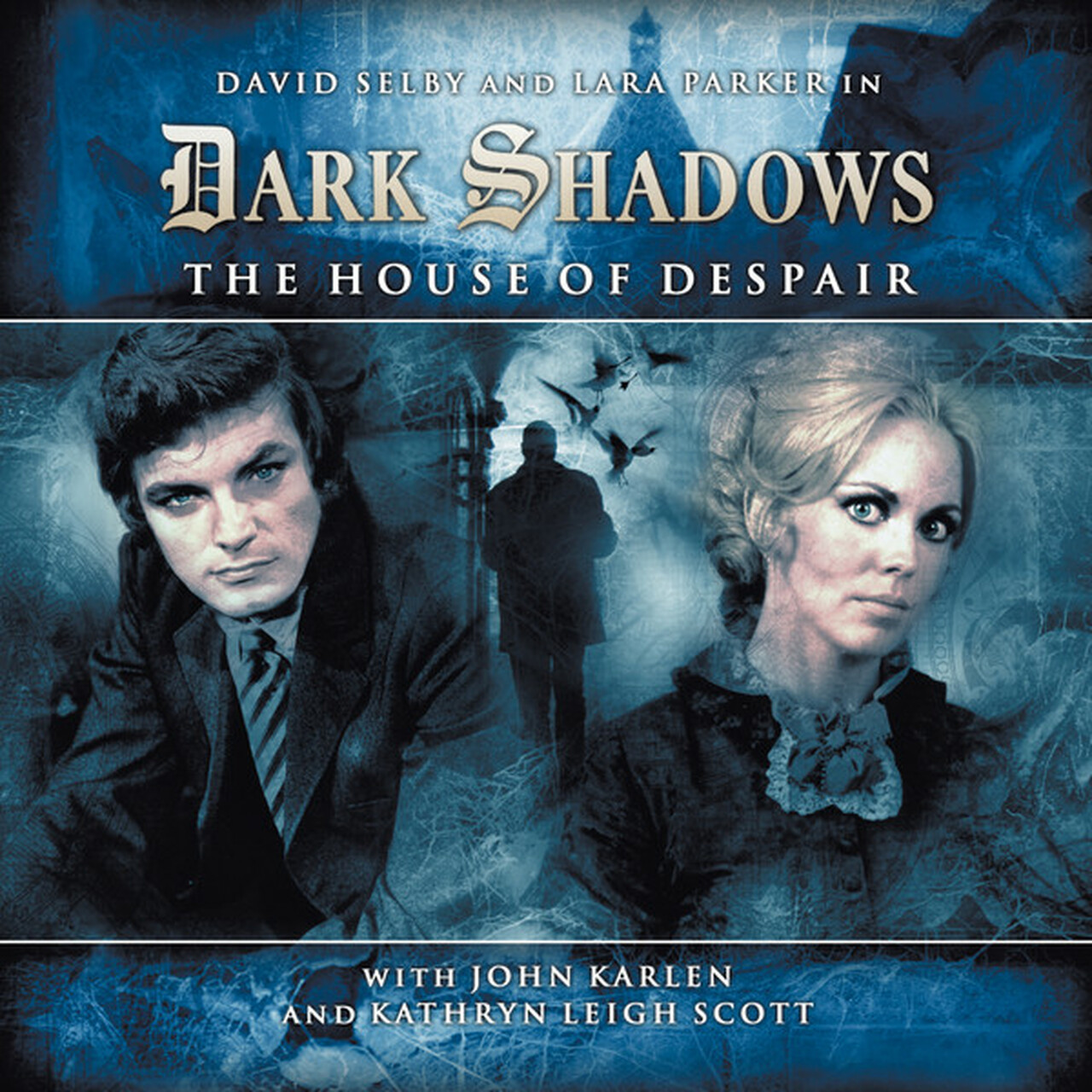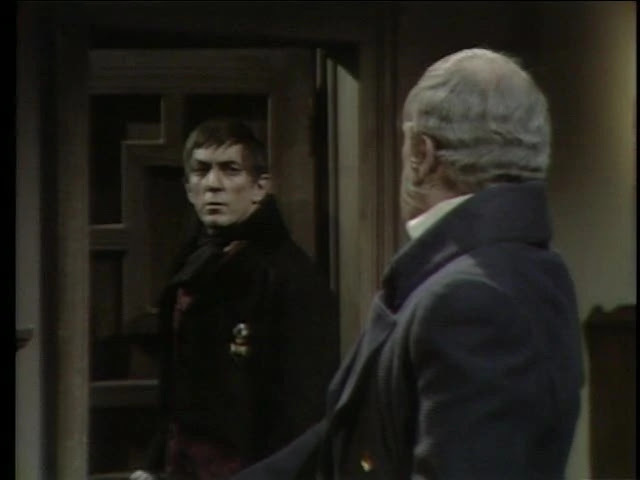Starring: David Selby, John Karlen, Andrew Collins, Lara Parker, Kathryn Leigh Scott, and Toby Longworth
Written by: Scott Handcock
Directed by: Gary Russell
Sloat in This SPOILERS AHEAD World (III)
“Surely you have something more…substantial for me to feast upon? It is Chris-TT-Mass, after all.”
Our first double dip reveals an unexpected strength and deepened appreciation for Dark Shadows: The Christmas Presence! My third time at-bat overall for Audi-O-Rama; an exploration and analysis of Dark Shadows (and others!) at Big Finish Productions.In the interest of full disclosure, o readers, despite my excitement in the opening of this column, I was slightly worried about “re-covering” some of these for the CHS. Thoughts like “will people want to hear about them again?” and “Should I just move into the House by the Sea and become a crab-man?” rattled through my head.
But much of that noise was blasted away once I finally sat down again with The Christmas Presence. As I found it a wholly delightful, well in-character single serial that is only improved with my as-chronological-as-possible listening order.
Christmas Eve is approaching and Quentin Collins is keeping true to his word to regather his family. He has a canny plan for it too. First, he will send out a sort of “psychic signal” into the world, inviting them back to Collinwood. Once back, he will ply them with a sumptuous Christmas lunch. One he’s invited the whole town to as well, with the help of Willie Loomis and Maggie Evans. And even Anqelique and Barnabas are put to the task, as Quentin recruits our favorite witch and vampire combination to help don Collinwood’s most gay apparel. Hopefully transforming the once imposing and empty mansion into the inviting pillar of the community Quentin wants it to be.
But someone…or someTHING else has other holiday plans. A ravenous creature that has been stealing children across Collinsport. Seemingly with the face of “whatever they want it to be”. For its latest victim it’s Santa Claus. But for Quentin, it’s the face of a family friend and only “person” to take him up on the invitation. Professor Timothy Eliot Stokes! Played with a hammy, but charming power by Big Finish veteran Toby Longworth. Drawing Collinwood once more into a tried and true supernatural scandal that is draped heavily in small-town tragedy, trauma, and torment.
What better way to spend a Christmas, right?
Oh, and also, a Christmas turkey bound for the oven comes to life and tries to kill Maggie.
Gosh I just think Dark Shadows is really neat.
My big Marge Simpson energy aside, The Christmas Presence really is a tremendous third installment for this fledgling range. One that continues to make good on the intention to “reestablish” Dark Shadows as a whole.
For one thing, they really start mixing up the character pairings, relying heavily on one of Dark Shadows’ most enduring and powerful elements; its cast. While David Selby’s more reserved and heartfelt take on Quentin Collins is still the de-facto “lead” of the serial, everyone down the line gets substantial time in the spotlight. Better still, they usually are paired off with someone else we love while doing so. Our beloved John Karlen gets some weighty scenes both with Kathryn Leigh Scott and Lara Parker. Andrew Collins’ regenerated Barnabas too is allowed ample room for charged, but largely courtly banter with Scott as well, tempered further with his hissed and powerful asides with Parker.
This is the first one so far that felt as if everyone had plenty to do and talk about and I appreciate Handcock and company realizing that’s where the real strength of Dark Shadows lies. In its ensemble and character interactions.
Better still, The Christmas Presence comes to the table with our first bonafide banger of a plot. The idea of Quentin imploring psychically for his family to come to Christmas lunch and then having to deal with how it pisses off the rest of the assembled cast to carry out said lunch could have been enough. But also further the inclusion of the “Nightmare Creature” that’s not only using Stokes’ face, but Stokes HIMSELF as a bridge into the waking world where he can feast on more nightmares. It’s just total candy, and right at home within Dark Shadows’ already established world of conceptual, but grounded monsters
The Christmas Presence ALSO comes with a great deal of expanded scope and attention being paid to its own internal continuity as my beloved Big Finishverse is starting to take shape. Folks wondering about Willie’s vampire bite from The House of Despair will be as disappointed as I was not to see that being followed up on just yet, but thankfully Handcock and Russell provide plenty more in its place.
Chiefly, more exploration of Quentin’s “Graveyard of Memories” as well as the opening gambits of The Second Barnabas’ own memory gaps from the end of the TV show. Along with his possible “overwriting” of the soul whose body he now inhabits. All being brought to a head as the cast faces off against the Stokes creature, who offers them the chance to make all their “dreams” (read: nightmares) come true.
It’s a lot of really heady stuff, but I really applaud the creative team’s willingness to go this big and this weird THIS early on in the range. All while achieving the nearly impossible task of keeping everyone sounding and acting in character supported by a meaty premise.
I was slightly worried about diving back into The Christmas Presence. I know this is one some fans don’t really enjoy and it has a slightly spotty reputation thanks to the “undead, killer Christmas turkey” of it all.
But truly, I was very impressed with it this second time around. It’s got all the major hallmarks one could want of “proper” Dark Shadows while also attempting to grow the franchise into new, interesting places. Using both known iconography, strong plots (finally) and the wonderfully spirited performances of the character actors we all have come to adore.
The Dark One bless us! Everyone!
Audi-O-Grams
- My original review! Part of a pair of “Very Special Christmas Episode” reviews I did for our beloved CHS.
- There is also a weird bit of discrepancy as to when this actually was released. The Big Finish website says “September 2006”, but the Dark Shadows Fandom Wiki (a resource I’ve found myself using more and more throughout this column) cites it as “January 2007”. Even in my OWN FIRST REVIEW, I say it’s 2006. One more thing to ask Scott Handcock and Gary Russell should I ever meet them.
- The Second Barnabas has the sword cane too and I’m just as giddy rediscovering that fact as I was first discovering that fact.
- Sheriff Haggerty shoutout! It’s awesome seeing this range already dropping hints and teases for the incoming serialization elements and miniseries. (Haggerty makes a debut proper in Kingdom of the Dead).
- Composer Joseph Fox continues to excel with the new scoring of this era of DS, but the wholesale (largely unchanged) use of “Josette’s Theme” during this serial really nailed me in the ribs. Tremendous stuff all around, score and sound design wise.
- Speaking again of Scott Handcock, I’m mostly finished with Doctor Who: The Mind of Hodiac; the Russell T. Davies “Lost Story” for the Sixth Doctor and Mel that he helped bring to life this past month. Expect a full review eventually over at my other gig Dis/Member, but a slight teaser, it’s tremendous (and oh, so, 80s, innit?!)
NEXT TIME: The Rage Beneath! Big Finish’s first arc finale! One I’ve never heard before! Be seeing you, house proud town mouses.














